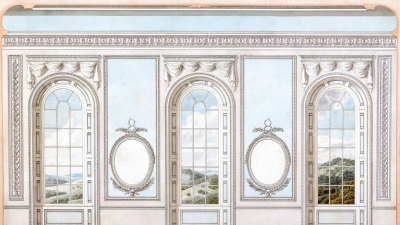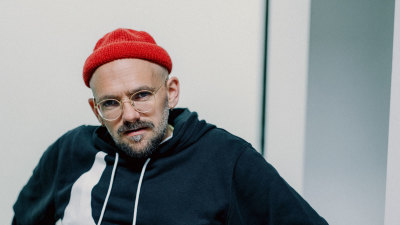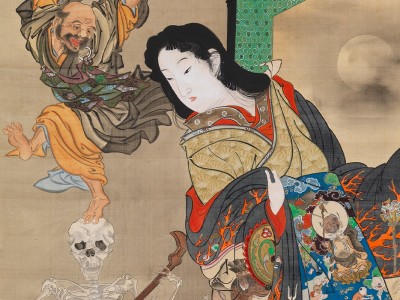Dennis Hopper: Icon of Oblivion
Dennis Hopper: Icon of Oblivion
A new look at a screen legend
By Asha McLoughlin
Published 10 June 2014
In celebration of the RA’s forthcoming exhibition ‘Dennis Hopper: The Lost Album’ the BFI is launching a Dennis Hopper retrospective in July, showcasing a selection of Hopper’s finest films.
-
The film season Icon of Oblivion opens on 2 July 2014, with an exclusive on-stage interview with Peter Fonda in collaboration with the Royal Academy, followed by a screening of the cult classic Easy Rider.
We asked Helen de Witt, Head of Cinemas at the BFI, to tell us more about the programme, and the man who inspired it, Dennis Hopper.
-

Dennis Hopper, Robert Rauschenberg, 1966.
Photograph. 18.59 x 24.64 cm. The Hopper Art Trust. © Dennis Hopper, courtesy The Hopper Art Trust. www.dennishopper.com.
-
Why did the BFI decide now was the right time to spotlight Hopper’s films?
Hopper is a very important figure in film history. He was significant in many ways: for his own creativity; his practice across film and photography; and for the way in which he changed American movie-making, as well as influenced filmmaking across Europe. There hasn’t been a season of his films in the UK for many years, so the occasion of the exhibition Dennis Hopper: The Lost Album at the Royal Academy presented a perfect opportunity to draw attention to his work in film, as well as in photography.
-
How did you select the films that make up the season?
We wanted to concentrate mainly on the period in which he was immersed in photography – the 1960s – to complement the decade covered by the exhibition. But we also knew that audiences would really want to see some of the later classics as well, so we added Blue Velvet and Colors. We also included Out of the Blue, which is sort of his comeback movie. It’s really underrated and rarely viewed – it’s not even available on DVD.
-
What do you hope audiences will take away from their experiences of seeing these films?
I hope it will be the excitement of seeing a really vital, vibrant and subversive form of filmmaking. For new audiences, they will really be discovering something different; for audiences who are revisiting the films, I’m sure they will relive the excitement of when they first saw them. That’s certainly what I’m looking forward to doing.
-
Many people think of Dennis Hopper primarily as a film actor. What qualities distinguish him as a film director?
Iconoclasm. Easy Rider really smashed the way people thought American films could be made and what they could be about. As an actor, director and person he stands for freedom, rule-breaking, and risk-taking at the deepest level.
-

Dennis Hopper in 'Easy Rider'
Courtesy BFI
-
This film season is called ‘Icon of Oblivion’. Where did that phrase come from?
I’d love to say I made it up, but I think I read it somewhere, or put it together from reading about him. It’s really about him being a figurehead for rule-breaking, for risk-taking and going to the limit. But also, of course, it’s an allusion to his drug taking – but with an understanding that without the drug use he wouldn’t have been the artist he was.
-
What is it about Hopper do you think that makes him such an intriguing personality, both on and off screen?
He’s attractive and dangerous. He represents both creation and destruction. Many of us would love to be as daring, but we’re just too scared to be. He produces work of great beauty – but they’re works about the truth, which is often ugly.
-
For which film role do you think Hopper will be best remembered?
It’s got to be Billy in Easy Rider. Then again, there’s Frank in Blue Velvet. So both, I think, and there you have it – freedom and danger, creation and destruction.
-
Which of his films had the most impact on you, personally?
It was Easy Rider – a film I grew up hearing about, and was desperate to see. It was the film my friend’s older brother used to talk about all the time. I saw it at the much-loved and lamented Scala Cinema in King’s Cross when I moved to London in the late ‘80s. It was everything I expected it to be from what I had heard, but better.
-
In addition to our special evening with Peter Fonda at the BFI on 2 July, our ‘Dennis Hopper’ events programme includes a free lunchtime lecture by exhibition curator Petra Giloy-Hirtz on 30 June, and a Late Night event in collaboration with University of the Arts London on 11 October. These events are sure to sell out, so book now to avoid disappointment.
Dennis Hopper: The Lost Album is in Burlington Gardens at the RA, 26 June –19 October 2014. Dennis Hopper: Icon of Oblivion is on from 2 – 31 July at the BFI.
Asha McLoughlin is part of the RA’s Learning Team.
-

Peter Fonda in Easy Rider






